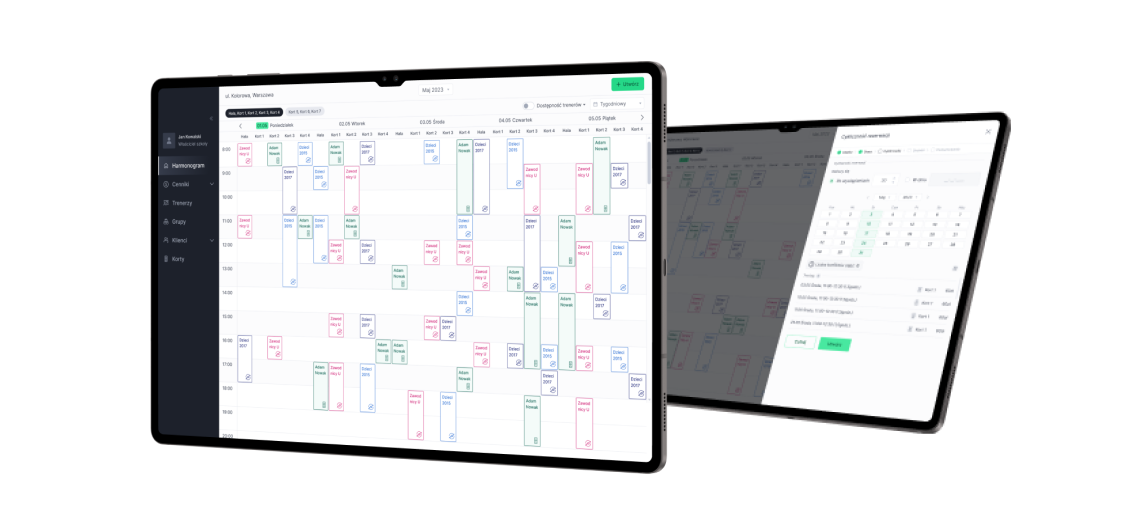
- Core Logic
- >
- Products
- >
- TenniSphere
TenniSphere
TenniSphere is a comprehensive solution for tennis clubs and tennis academies that provides support in two key areas of operation: infrastructure rental management and tennis training coordination.
As part of rental management, the system enables efficient scheduling and booking of courts along with additional services such as lighting and equipment. The second area focuses on supporting the organization and delivery of training sessions. The system handles processes related to creating schedules, managing training groups, tracking attendance, monitoring student progress, and managing billing (both with clients and coaching staff). By integrating these two areas into a single tool, tennis school and sports facility owners gain full control over all aspects of their operations.
Check out TenniSphere in action!
Fill out the form and try the demo version to see how TenniSphere can improve your tennis academy’s operations!
Features of the reservation system (irastructure rental)
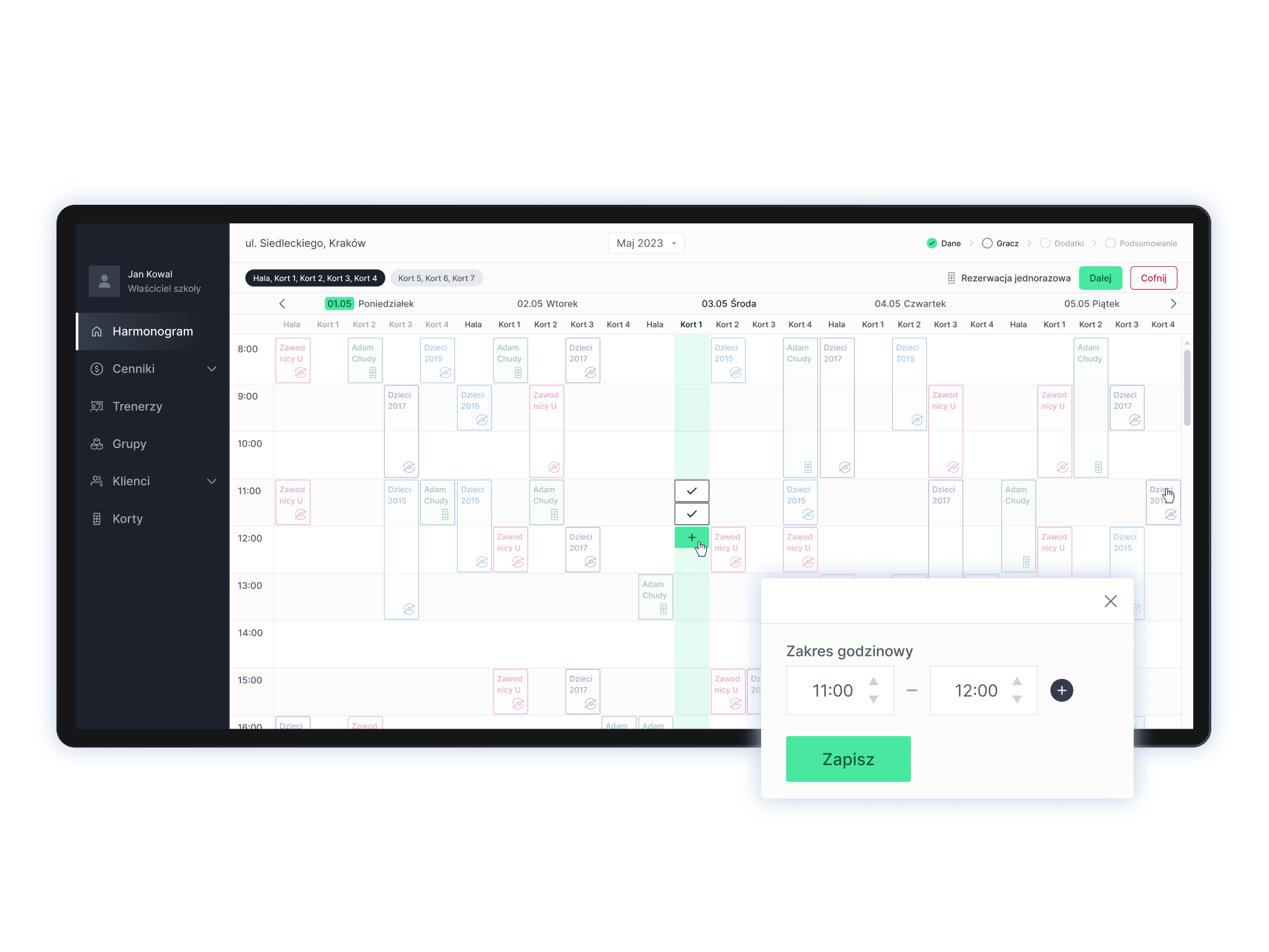
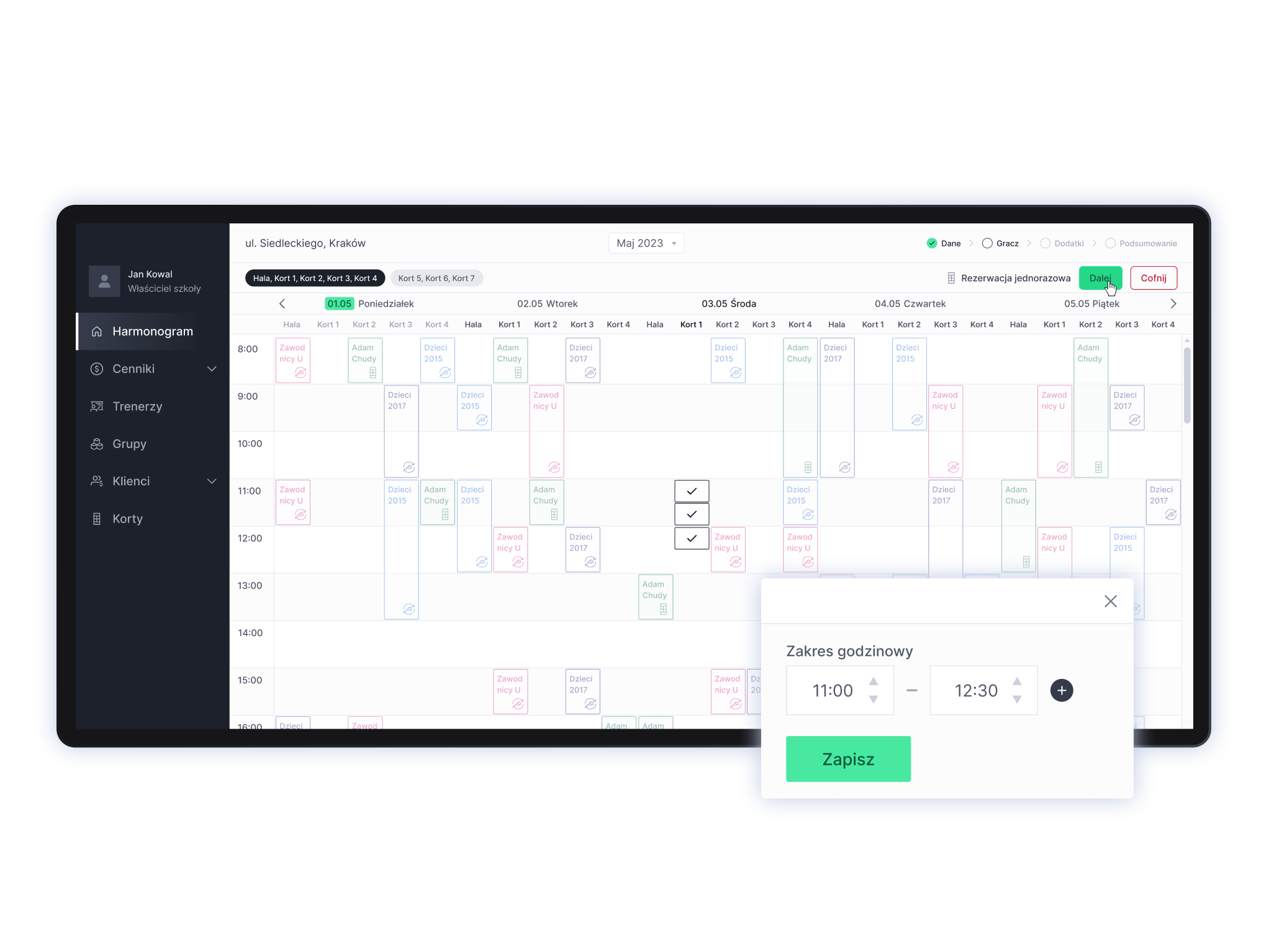
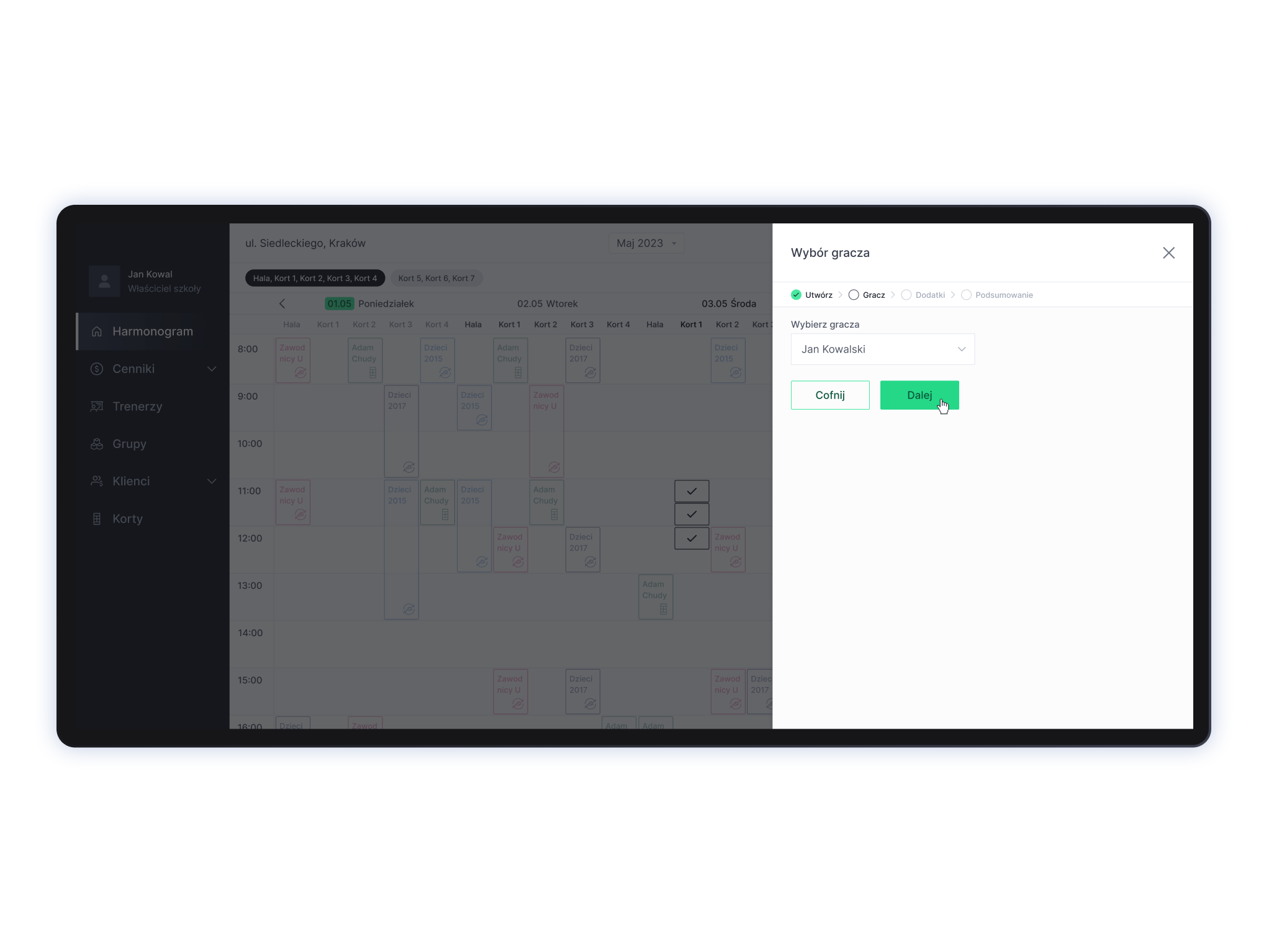
Court reservations
The system allows for both one-time and recurring reservations of courts and training sessions. School owners can manage the schedule from various perspectives: court availability or group timetables. This flexibility simplifies the organization of lessons, tournaments, and other events.
Online payments in the system
Users can make payments using convenient and secure methods such as credit/debit cards, online bank transfers, or mobile payment systems. Clients can pay for one-time court reservations or use recurring payment options, for example, for regular court use on specific days of the week during the season. Additionally, the system supports various payment models for training sessions, such as monthly subscriptions for group classes or individual lessons. This allows tennis school and facility owners to tailor billing methods to client preferences, providing full flexibility and convenience.
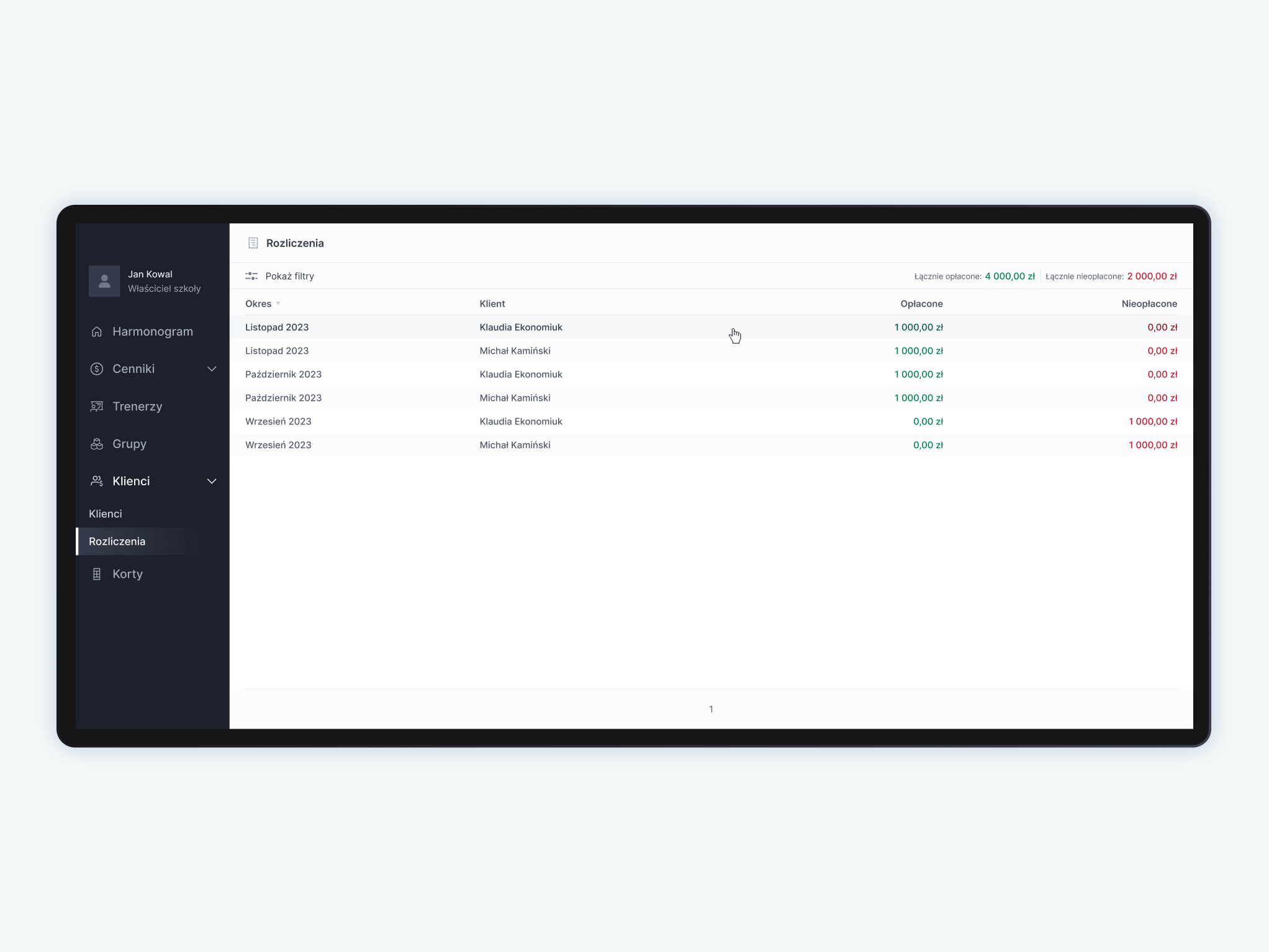
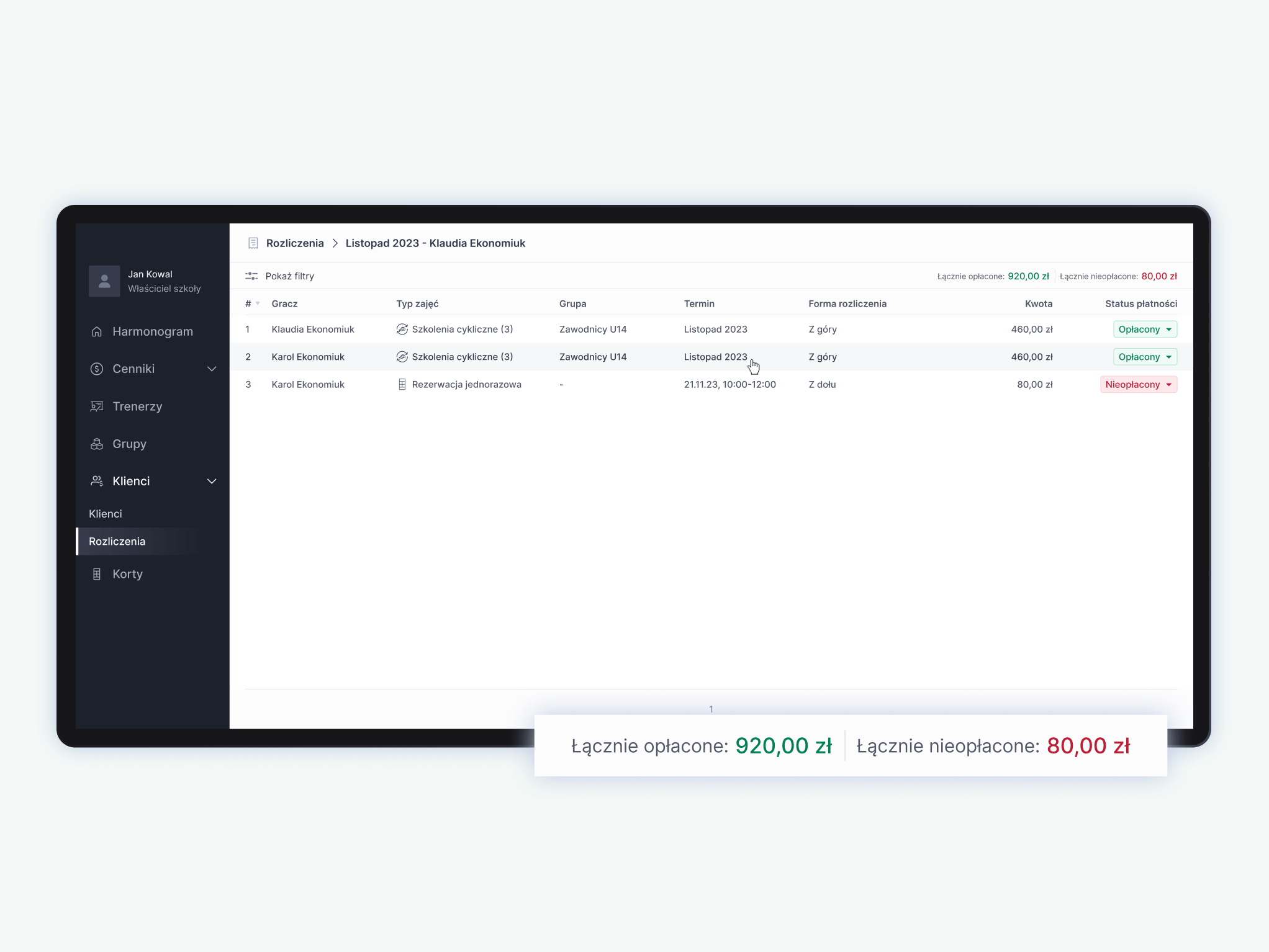
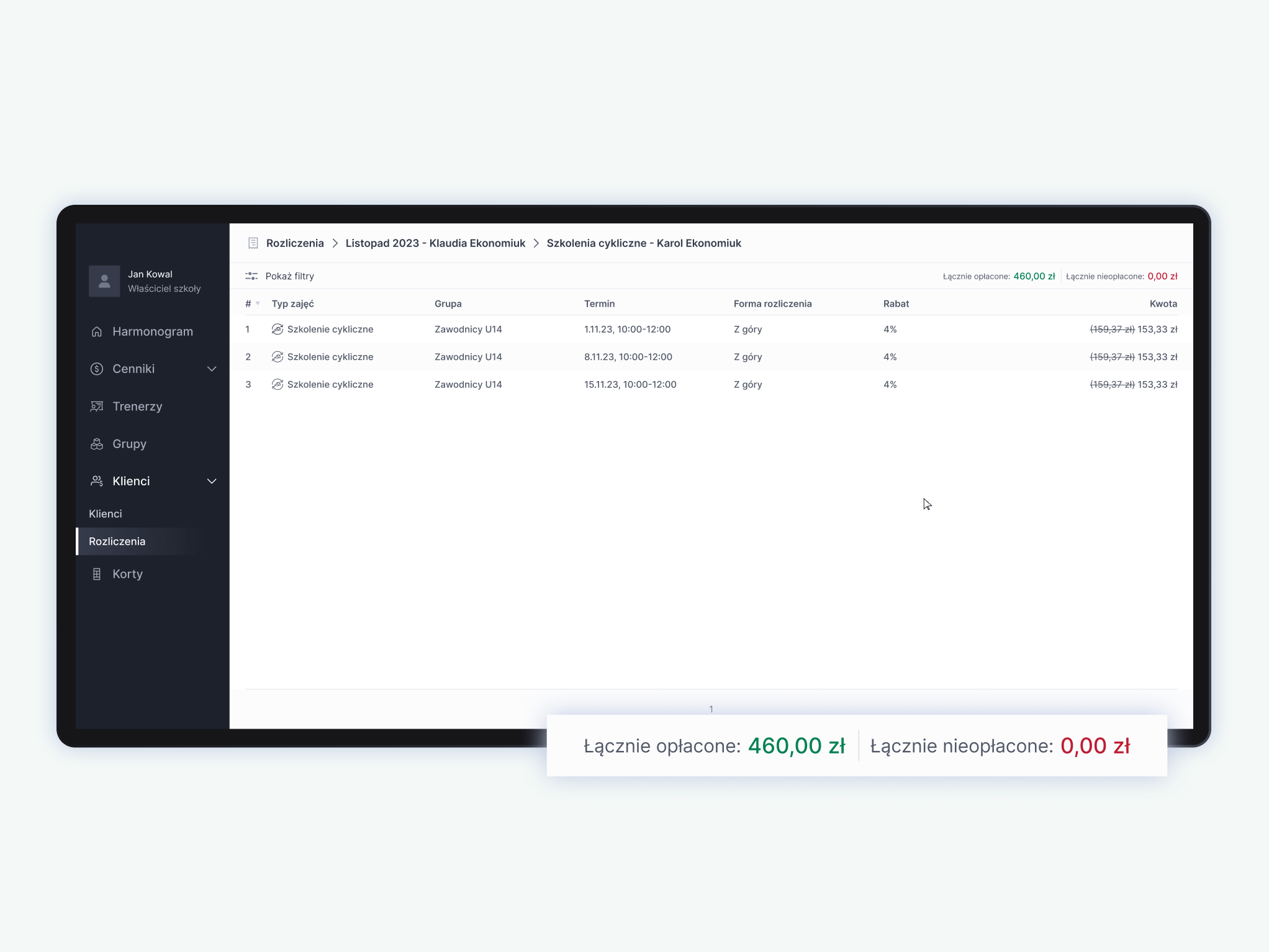
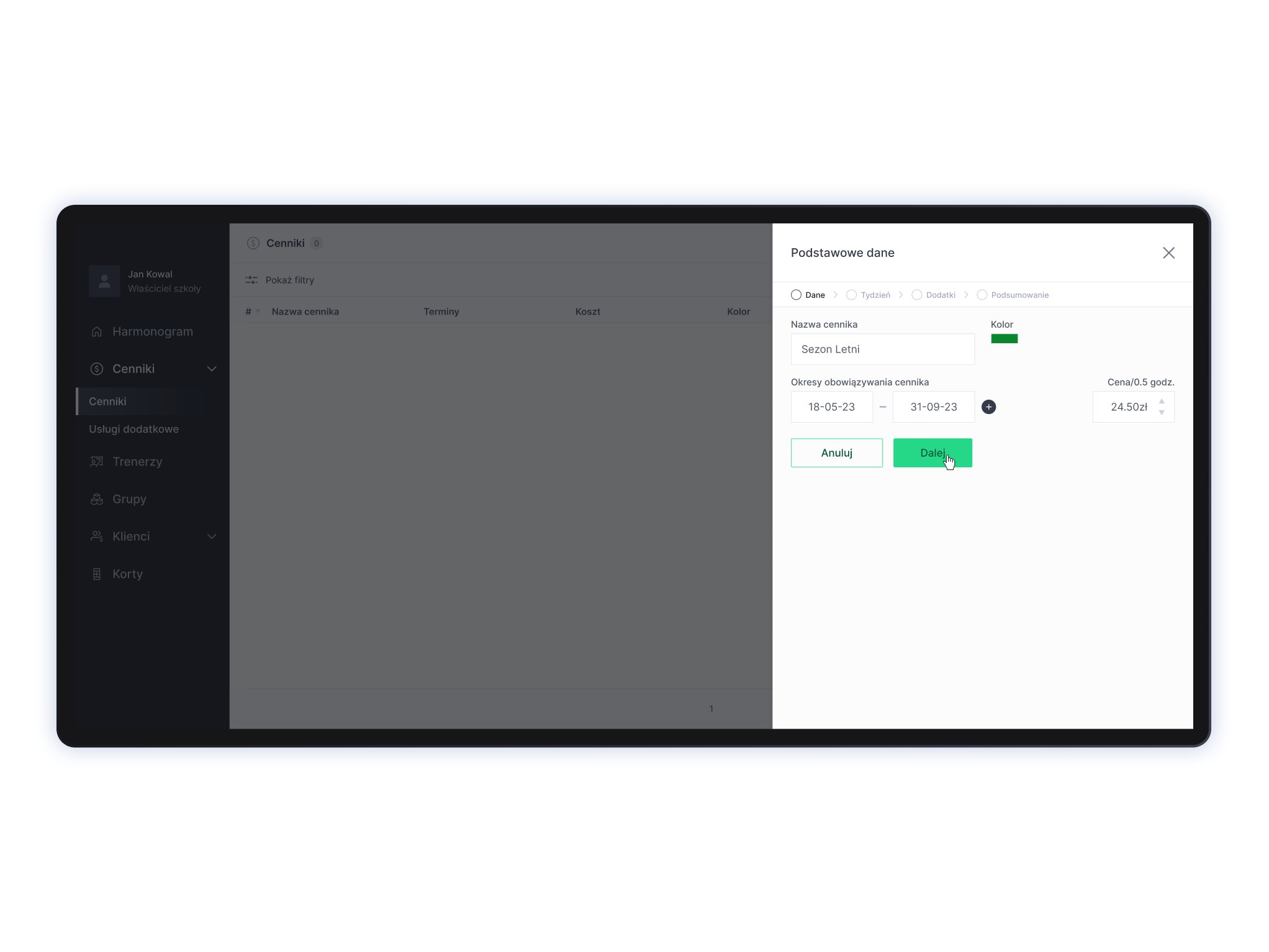
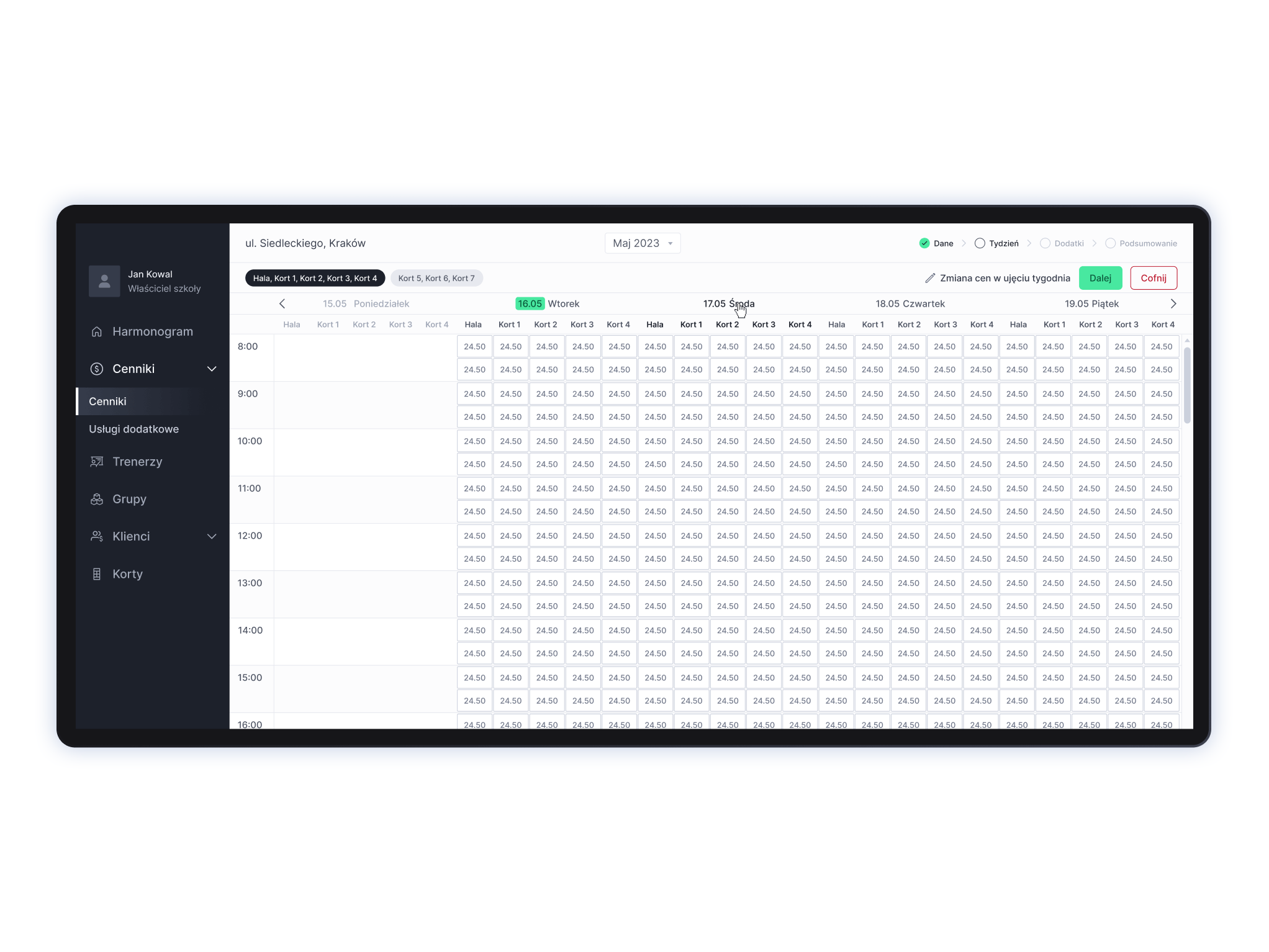
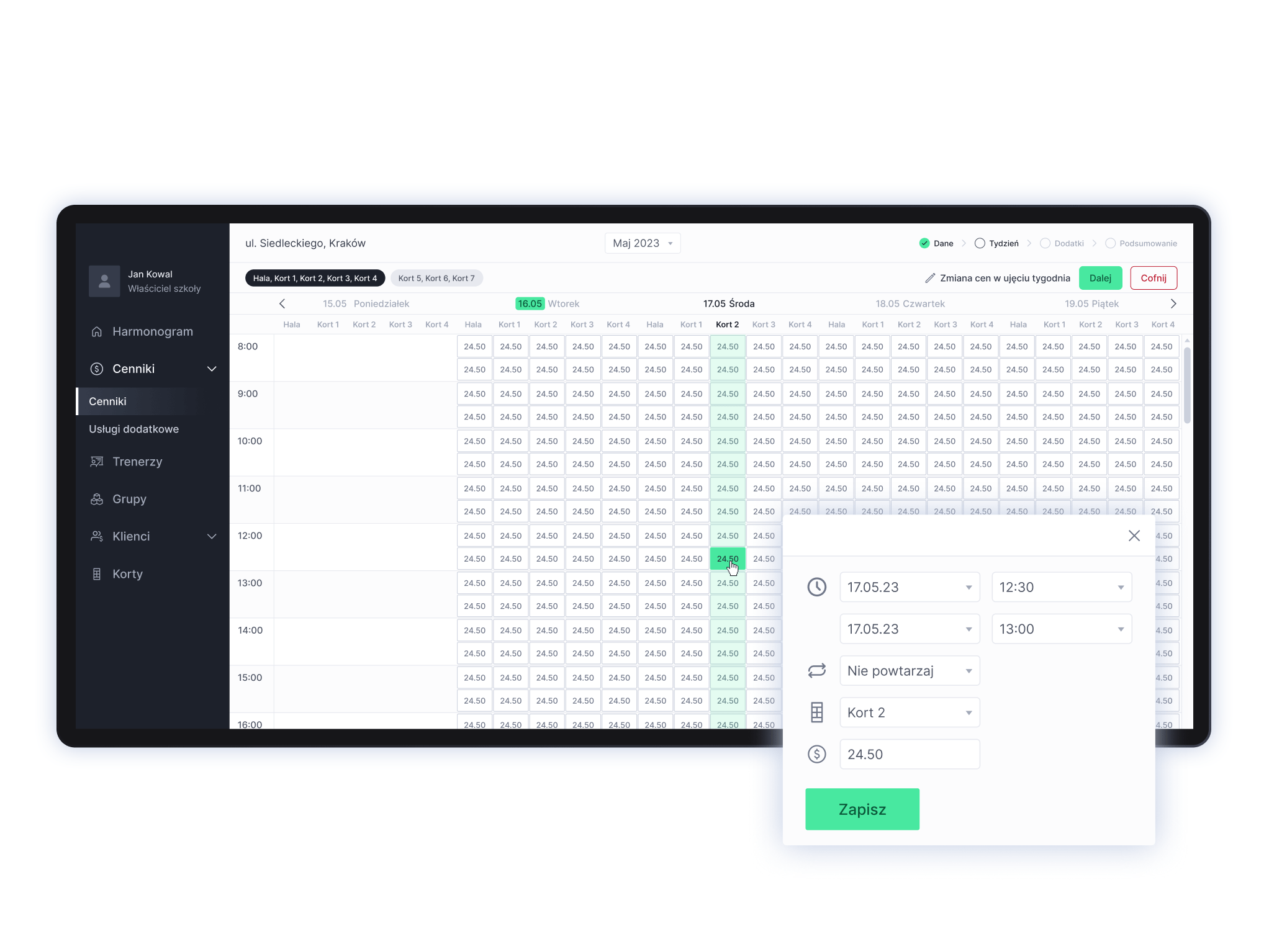
Rental management
The system enables flexible management of pricing and discounts, allowing facility owners to set different rates based on the day of the week, time of day, and special offers—such as discounts for regular clients or seasonal promotions. Additionally, the system supports both one-time and recurring reservations. Clients can book courts for single sessions or set up regular, repeating bookings (e.g., weekly), making it easy to plan and manage court usage.
The system adapts to the individual needs of the facility owner, supporting revenue optimization and better resource management. Users can rent additional services defined in the system, such as lighting or equipment. Separate pricing can be set for these services. Clients have the option to rent, for example, tennis balls (e.g., three balls or a full basket) and tennis rackets. The costs of renting such additional services can be added to the court rental fee.
“TenniSphere is the world’s best tennis academy management software.”
I highly recommend it,
Magdalena Grzybowska
Reservation system features (training process)
Training group management
One of the key components of the system is the organization of training groups, which takes into account various criteria to help create groups that are uniform in terms of skill level—an essential factor for the effectiveness of the training process.
For children – group organization is based on two main criteria: age and skill level. It's important for children to train in groups that match their abilities and provide an environment that supports their development.
For adults – in this case, the primary criterion is skill level rather than age. Adult participants are grouped according to their level of advancement, enabling more effective and targeted training.
Individual sessions with a coach – the system allows for court reservations with a coach for individual (or one-on-one) training sessions. Players can book personalized training tailored to their skill level and time preferences.
The system also offers the option for manual participant assignment by the school owner or coach. This makes it possible to consider special needs, such as participant preferences, specific health requirements, or the need for a personalized training approach.
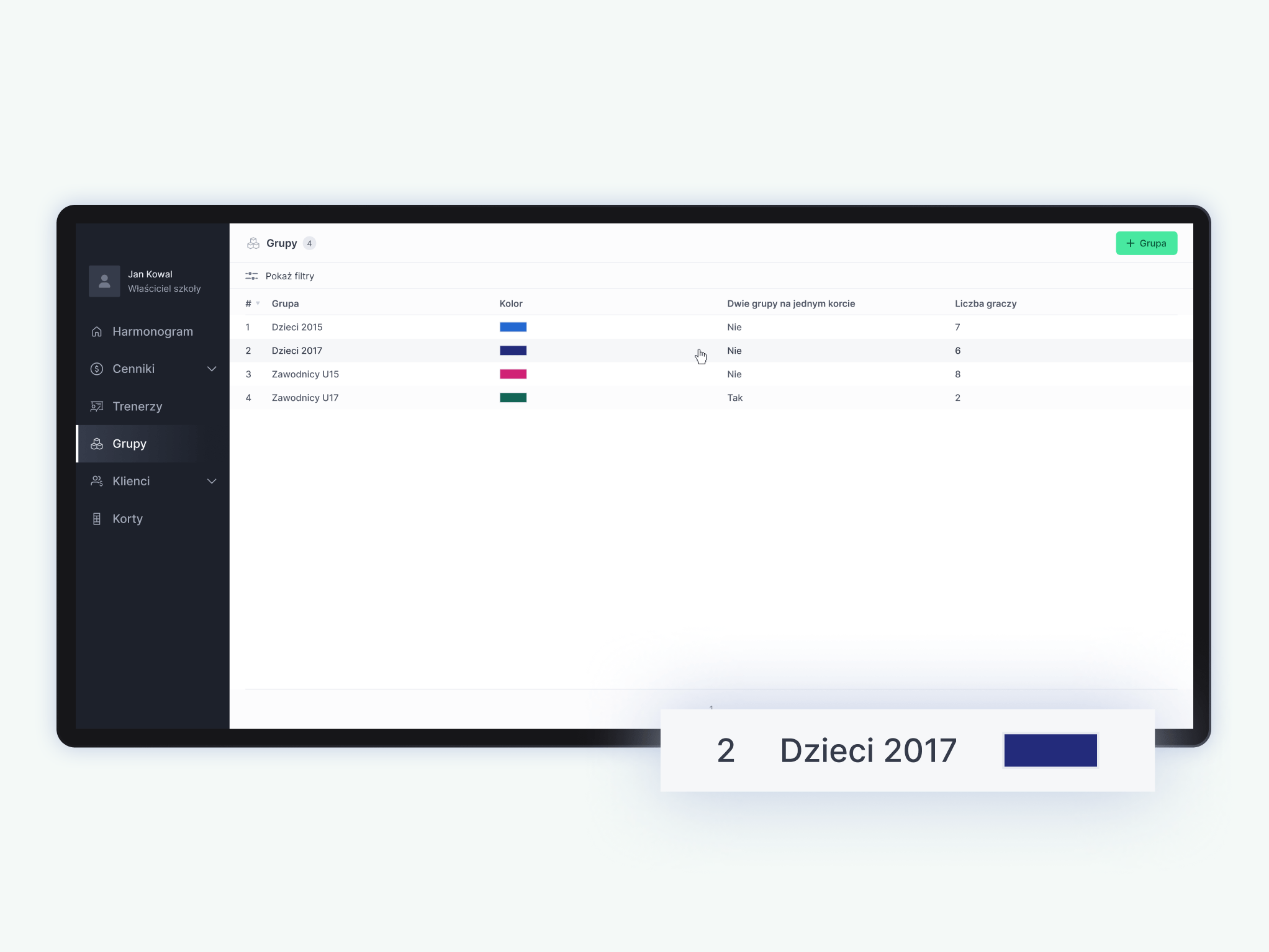
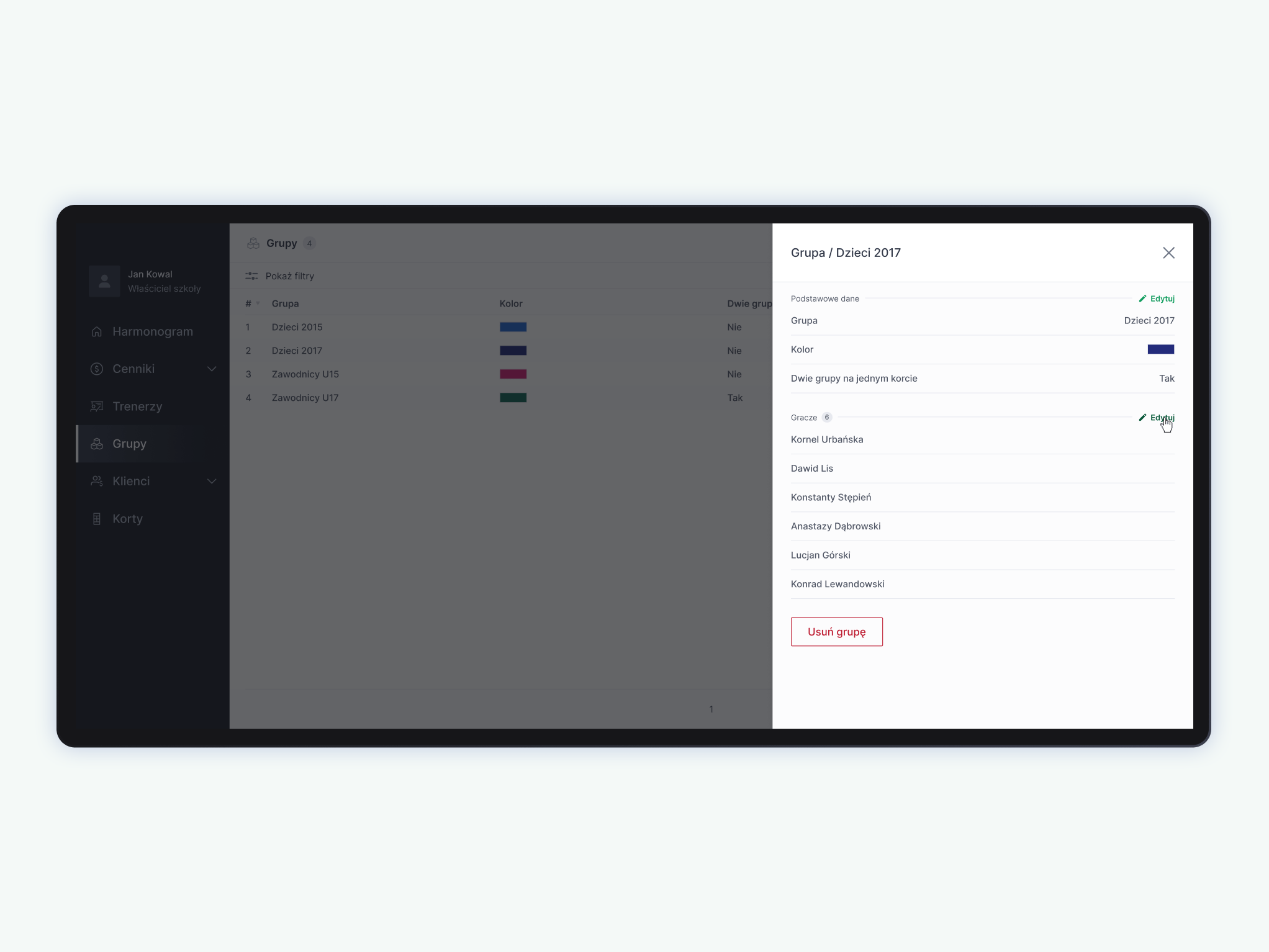
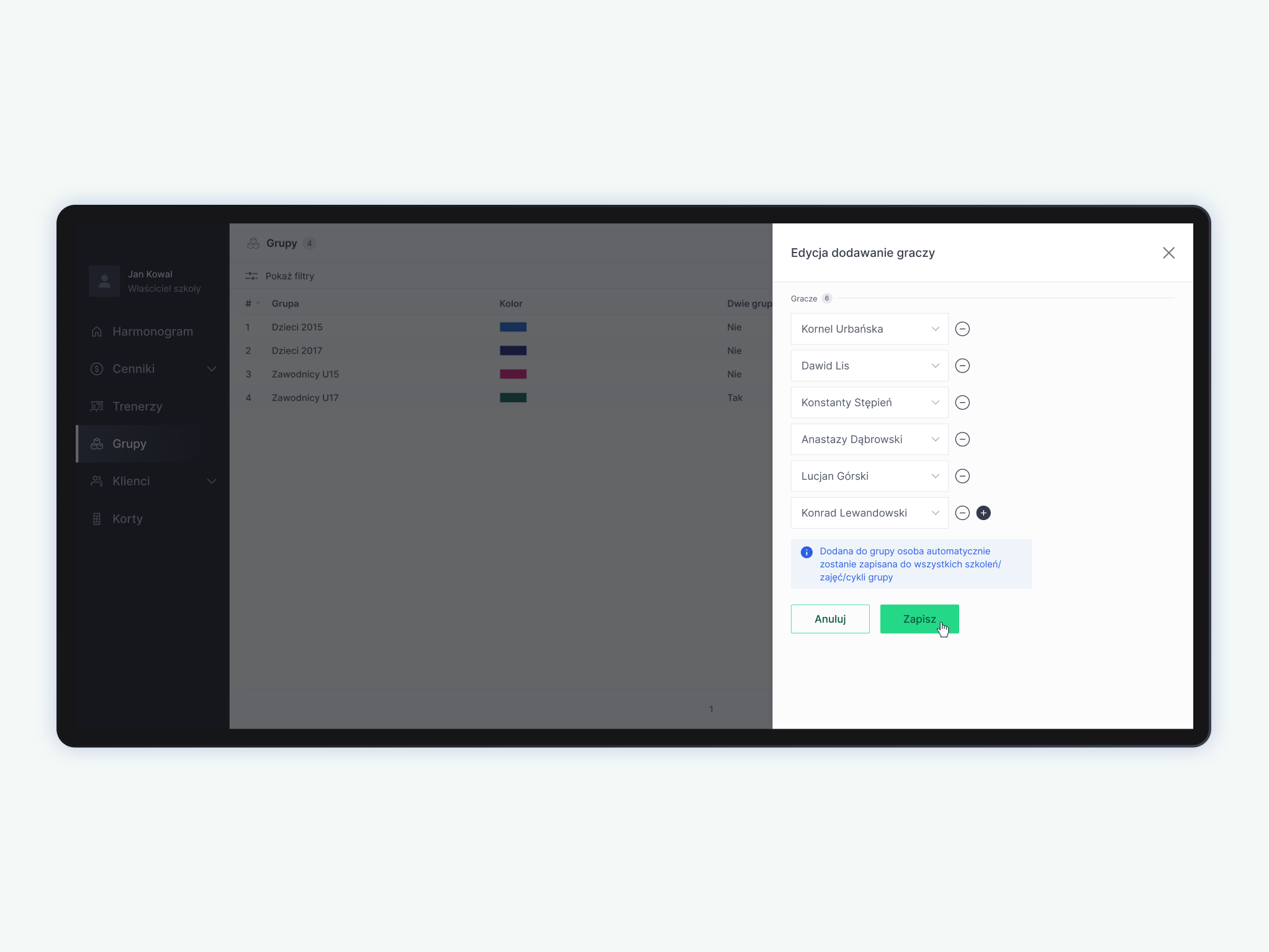
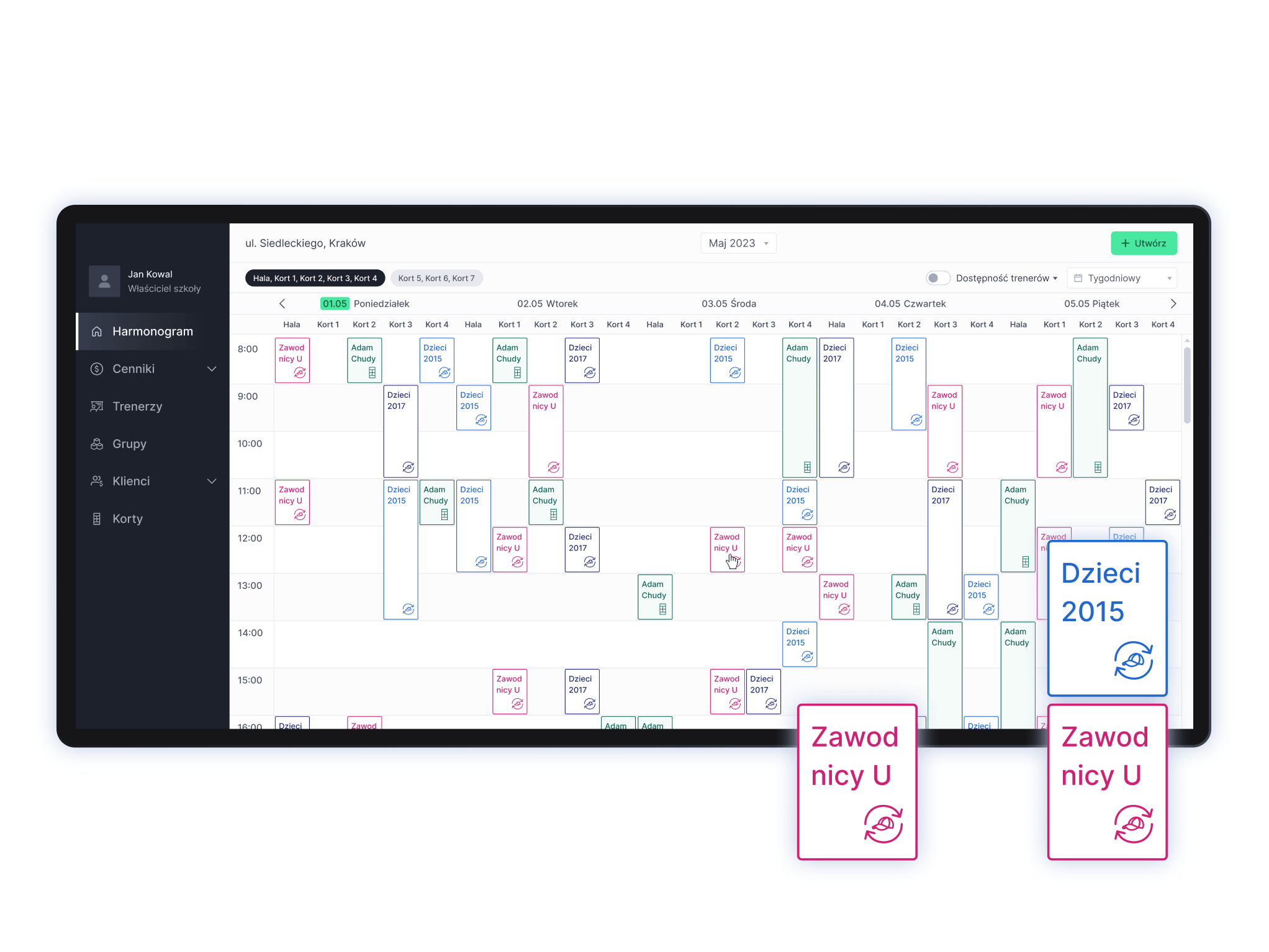
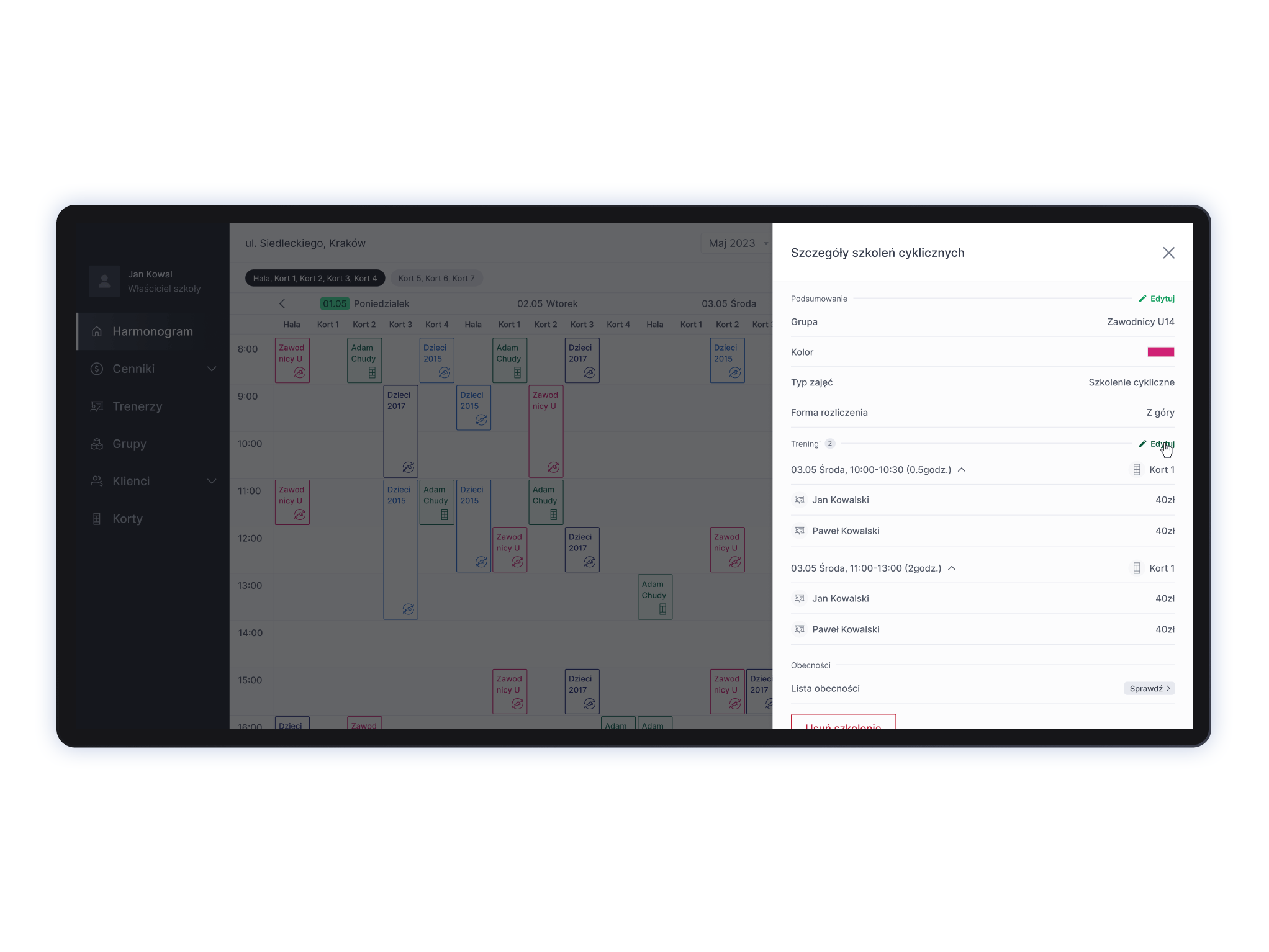
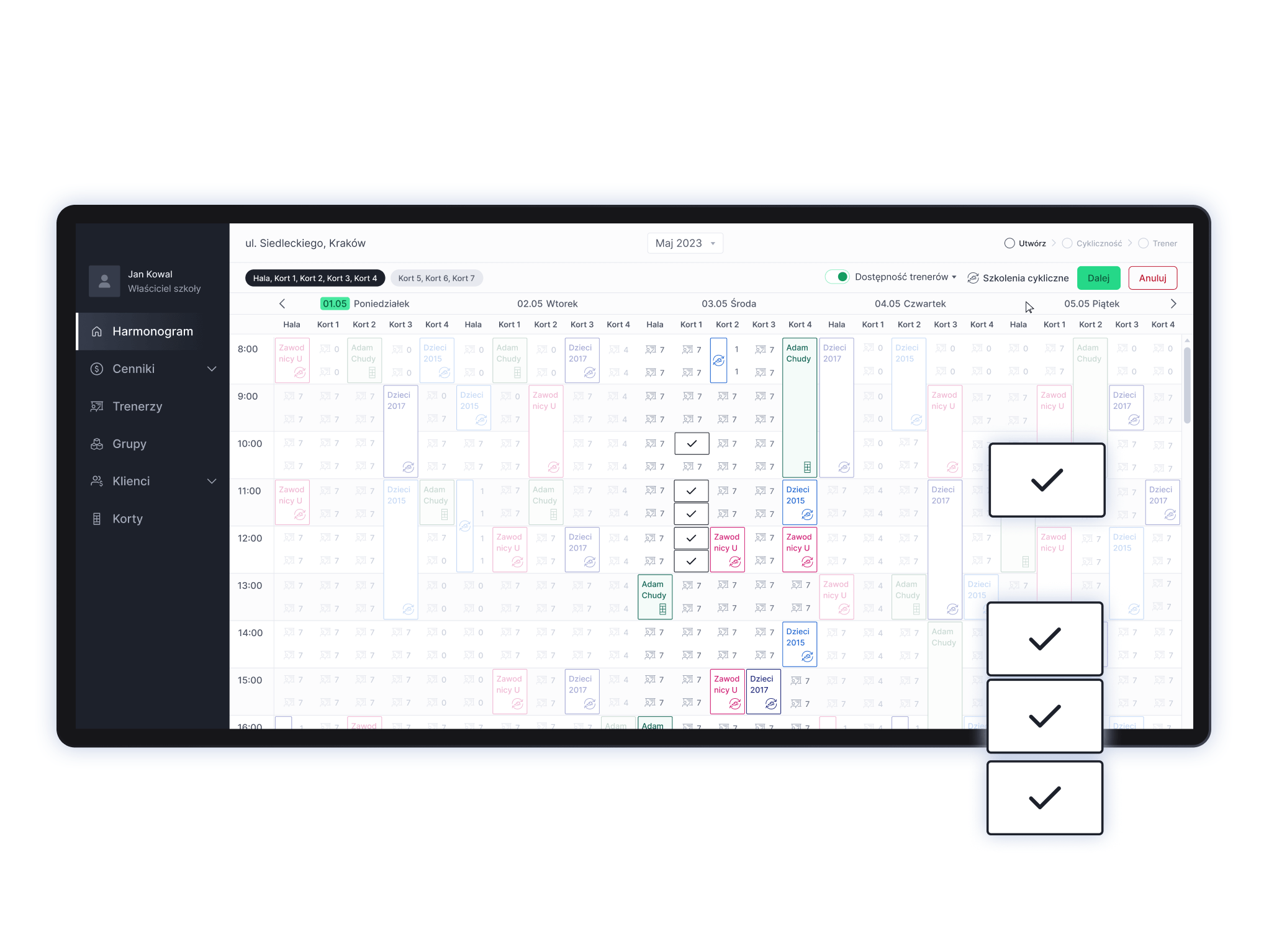
Flexible class scheduling management
The system allows administrators to comprehensively manage class schedules and organize training groups. Administrators can create groups, assign coaches and courts to them, while taking into account coach availability constraints. The system automatically checks for scheduling conflicts to prevent overlapping bookings, eliminating planning errors and making it easy to quickly create a clear and efficient training schedule.
Additionally, the system supports billing processes and the management of unforeseen situations, such as class cancellations. If a participant cancels or reports an absence, the system automatically frees up the spot and notifies other interested users, who then have the opportunity to book the available time slot.
Integration with the system calendar simplifies booking synchronization and enables convenient management of the training schedule, including non-tennis activities. If a participant changes their preferences, the school owner or coach can easily update the schedule, ensuring continuity of the training process and flexibility in organization. Participants can choose the days and times they wish to train—for example, a child may attend one group on Tuesdays and another on Thursdays, depending on the parents' preferences.
Coach billing and lesson planning
The system supports various coach compensation models:
- Hourly payment for conducted sessions – coaches are compensated based on the number of hours worked during training sessions.
- Salaried compensation – for full-time coaches, the system allows for assigning and tracking working hours.
Additionally, the system supports coach work organization by offering features that simplify lesson planning. Coaches can set their availability preferences—for example, indicating they are available on Tuesdays and Thursdays from 3:00 PM to 8:00 PM. Based on this input, the system schedules sessions only within the specified time slots, helping to organize coaches' workloads more efficiently.
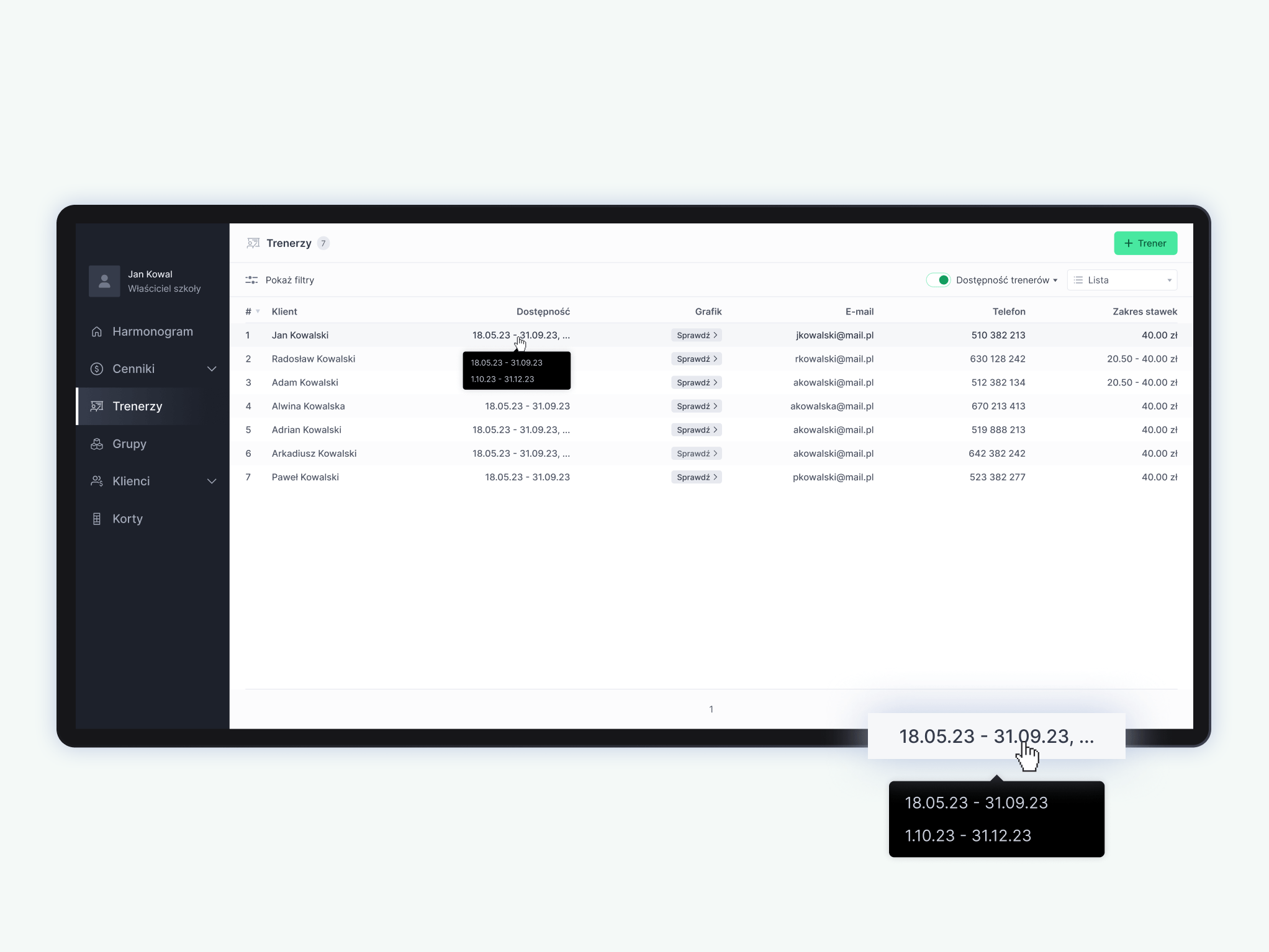
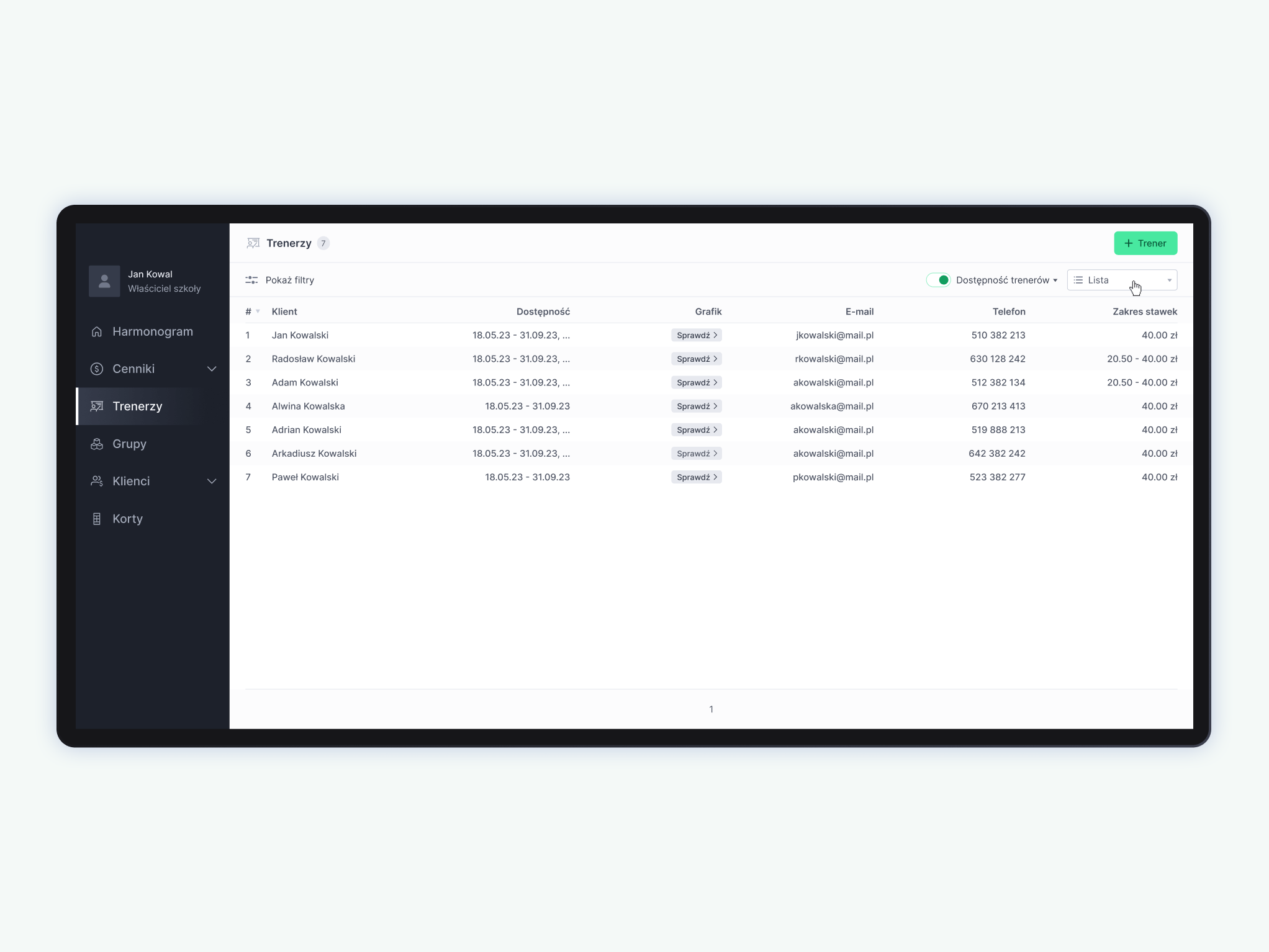
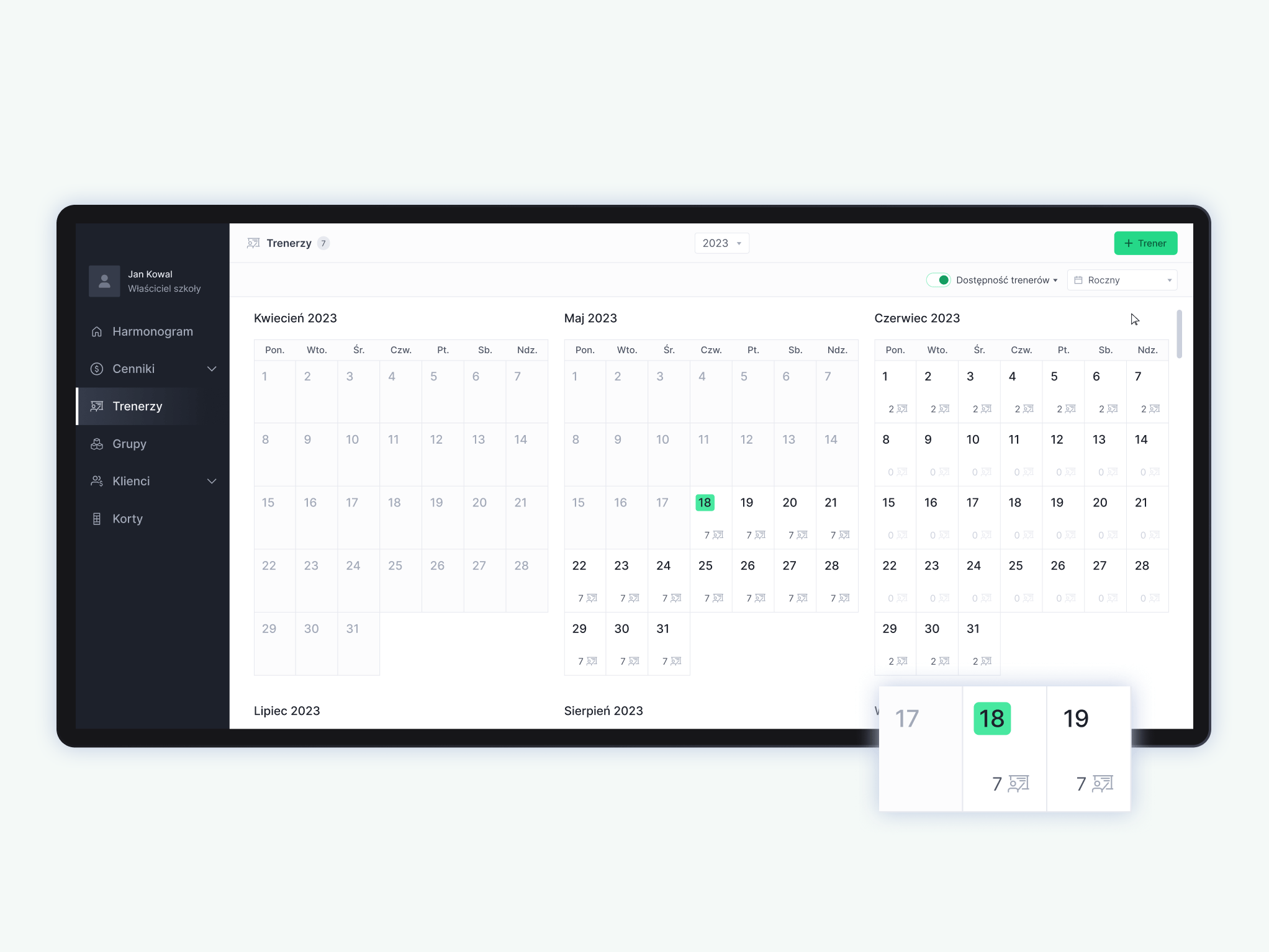
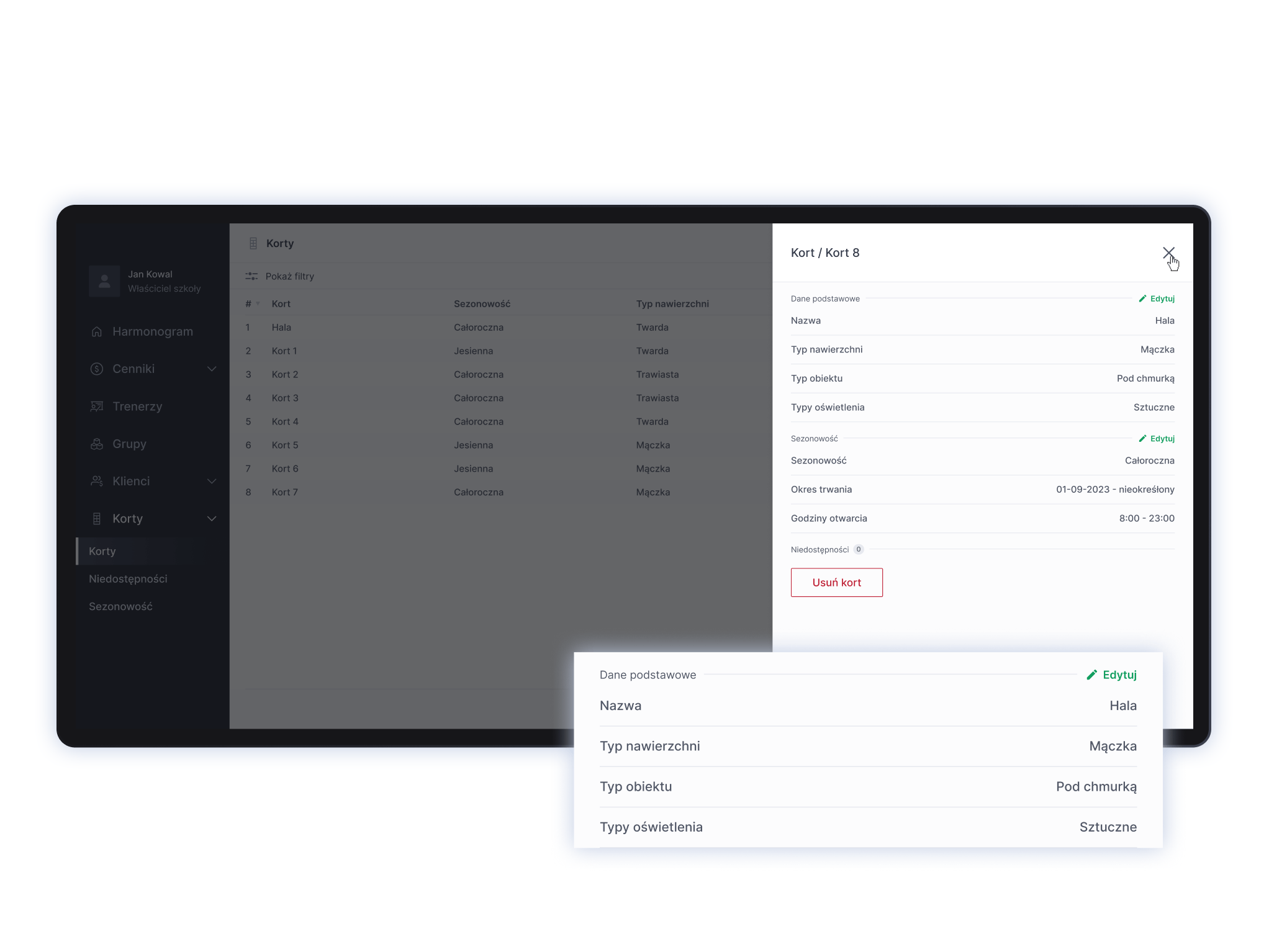
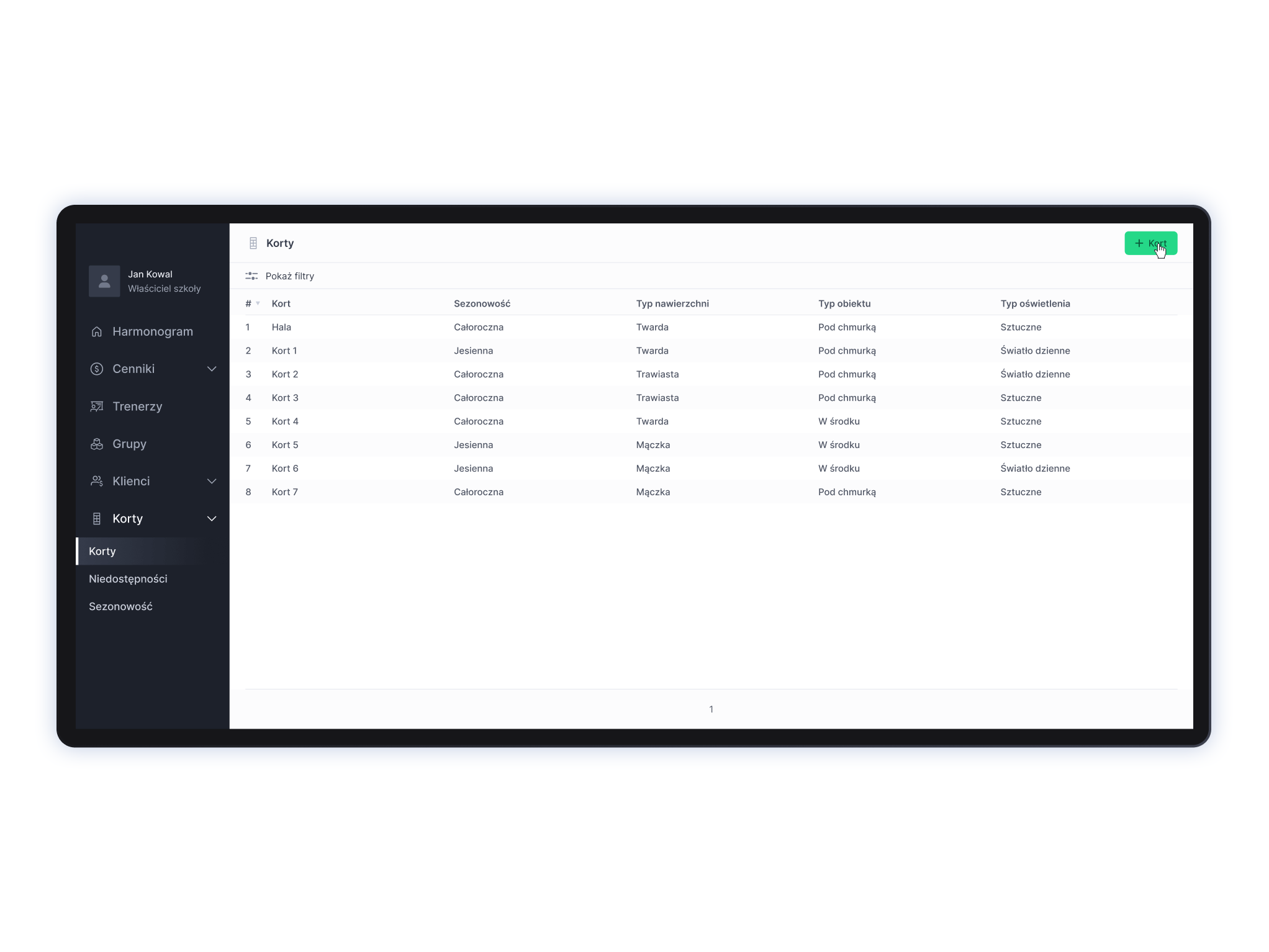
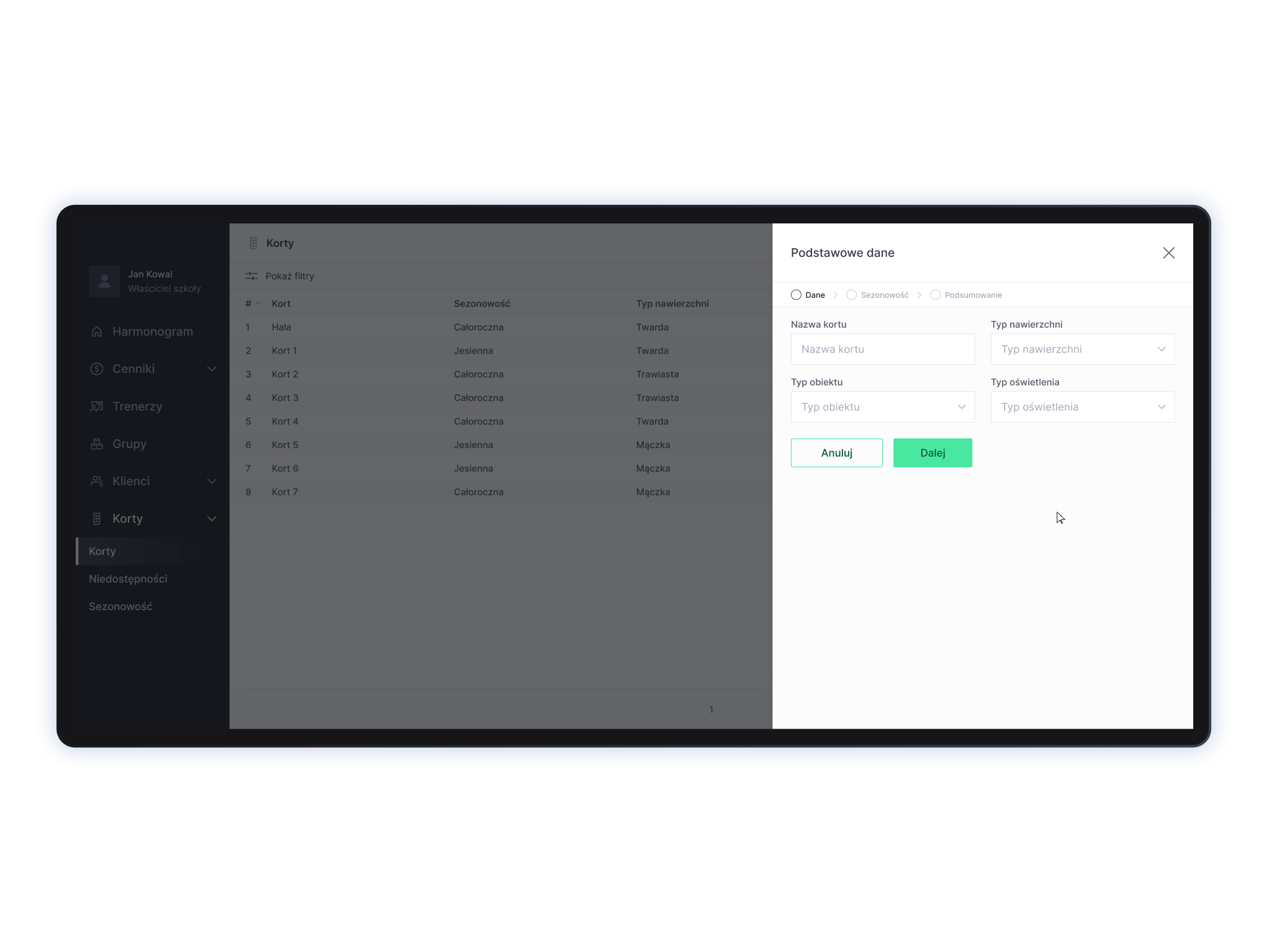
Facility rental management for training sessions
From the perspective of a tennis school owner, the most challenging management model is one where the school does not own its own infrastructure. In such cases, it is necessary to coordinate billing with multiple external providers from whom the school or club rents courts. This involves setting rental rates and accurately calculating usage costs. At the same time, the owner must manage billing with clients who pay for the training sessions, as well as with the coaches conducting those sessions.
The school owner manages not only clients and coaches but also the rented courts. This requires coordination between:
- facility owners from whom the courts are rented,
- clients who attend sessions at specific locations,
- coaches who conduct sessions on the rented courts.
The system supports these processes by enabling automatic scheduling of sessions, assigning locations, and generating billing for all parties involved.
Tennis system for schools
With its own infrastructure
With its own infrastructure across multiple locations
Without its own infrastructure
Hybrid school
Benefits for tennis school owners
- Easy scheduling and management – assign courts, coaches, and groups while eliminating scheduling conflicts.
- Efficient billing – automatic calculation of client payments and coach compensation.
- Discount system – ability to set individual discounts for loyal clients and families.
- Automatic notifications – inform clients about available spots, schedule changes, and payment status updates. Zapytaj czatbota ChatGPT
- Online reservation management – fast and convenient handling of court rentals and class registrations.
- Mobile app for coaches and clients – access to schedules, payments, and reservations directly from a smartphone.
- Integration with accounting systems – streamlines billing and revenue tracking.
- Minimization of organizational errors – automatic monitoring of coach, court, and training group availability.
- Optimal court utilization – the system helps maximize court occupancy and efficiency.
- Absence management – automatic notifications about freed-up spots and alerts to interested players.
- Easy coach management – assign coaches to groups, set their availability, and track working hours and payments.
- Multi-location support – an ideal solution for schools that rent courts at various locations. Zapytaj czatbota ChatGPT
Benefits for coaches

A coach can set their availability preferences by specifying the days and hours they wish to conduct sessions. Based on this information, the school owner assigns appropriate groups and time slots, ensuring optimal use of the coach’s working hours.
The system requires coaches to record participant attendance during sessions, which is essential for managing makeup classes. This enables efficient handling of freed-up spots, allowing other participants to use them. Additionally, the system automatically notifies parents about their child's absence and informs them of available times to make up the missed session.
In emergency situations, such as sudden illness or an accident, a coach can notify the school owner of their absence directly through the mobile app. The owner can then quickly arrange for a substitute or cancel the session, enabling efficient management of critical situations.
The coach has full access to their training schedule, which is integrated with the system calendar. Through the mobile and web applications, they can continuously monitor and manage their session timetable in real time.
The coach can assess the skill level of players, which is especially important in long-term training programs. The initial level, provided by the user during registration, can be verified by the coach based on observations during sessions. This verification enables the reorganization of groups—for example, in the summer cycle following winter sessions, when players have made progress. The coach tracks participants' development, allowing for better alignment of the training program to their needs.
The coach has access to their payment records, allowing them to see how much compensation they are entitled to for the sessions conducted. The system automatically calculates the amount based on the number of hours worked, the type of sessions, and any applicable bonuses.
Benefits for tennis schools

The user account is a central element of interaction with the system. Each account must have at least one player assigned to it. Example scenarios for using an account include:
- Court rental – the client uses the account solely to book courts and pay for them in advance.
- Individual or pair lessons – the client schedules one-on-one or two-person sessions with an instructor.
- Group classes for children/adults – the client adds another player to the account, such as a child participating in group tennis school sessions.
- Easy and transparent billing – the system automatically records all payments and transactions, ensuring full cost transparency for clients.
The system allows multiple players to be managed under a single account. Each player can have separate training sessions, billing models, and assigned discounts. The system generates detailed reports, itemizing charges for court rentals, individual lessons, and participation in tennis training programs.
Features available to the client
The client has access to a range of features that support player and reservation management:
Ability to view the training schedule of all players assigned to the account.
Access to detailed reports and account balance.
Court bookings and payment processing.
The client can report a player's absence from a session or cancel a court reservation within a specified time frame, which may result in a refund according to the school’s policy.
Option to choose the number of sessions per week, group size, and skill level.
Selecting the number of weekly sessions, group size, and skill level.
Ability to schedule individual training sessions directly with coaches.
Implementation and billing models for the tennis system
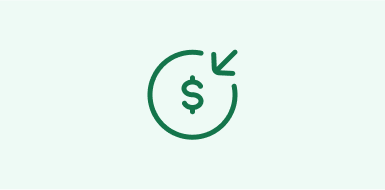
User fees
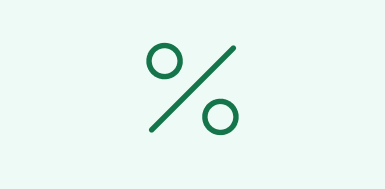
Transaction-based percentage fee
Hybrid model
Client participation model
Why TenniSphere?
The tennis system project is the result of the efforts of the Core Logic team, a company that has been developing modern technologies to support tennis in Poland for years. Behind the system lies not only extensive experience in the IT industry, but also deep domain knowledge, ensuring the application meets the needs of both players and coaches. Magdalena Grzybowska, a multiple-time Polish Champion, served as the expert consultant during the development of the system.
Core Logic plays a key role in the technological advancement of Polish tennis by offering innovative solutions such as a management system for tennis clubs and the TenniScore app. The entire software ecosystem developed by Core Logic is designed to meet the needs of players, coaches, and tennis facility owners—delivering cohesive, technologically advanced tools that support the growth of the sport at every level.

Core Logic also supported Jędrzej Myszkowski in setting a Guinness World Record by playing 37 tennis matches over the course of 36 hours. This achievement broke the record for the most consecutive tennis matches played. The remarkable feat took place at the Juan Carlos Ferrero Academy.

Core Logic is a sponsor of Jan Skrzyński, a young and talented tennis player who is already achieving remarkable results. Jan Skrzyński was part of the team that won the silver medal at the 2023 European U14 Championships and is a multiple-time Polish Championship medalist. He finished 2023 ranked as the No. 10 U14 player in Europe and is set to finish 2024 as the No. 11 U16 player in Europe.

Core Logic supports Daniel Michalski — a leading Polish tennis player of the younger generation, the 2024 Polish Vice-Champion and 2022 Polish Champion. Daniel Michalski regularly competes internationally, boasting 7 ITF singles titles and 5 doubles titles. The start of the 2025 season has been successful for him, with strong performances in the ATP Challenger circuit and further climbs in the global rankings.

Paweł Skrzyński personally participated in the project. He was honored with the Małopolska Sports Laurel for 2023 as one of the top coaches in the Małopolska region. This prestigious award, given to just 15 coaches across all sports disciplines, highlights his significant contribution to the development of young athletes and the promotion of tennis at the highest level.